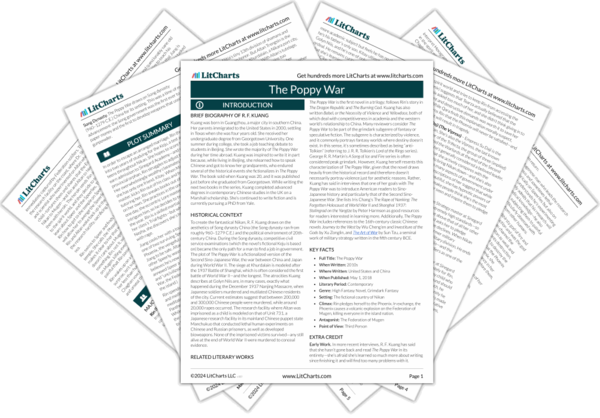Here, Rin finally shows that she’s moving toward maturity. She instinctively wants to blame Chaghan for what happened to Altan, but the more mature part of her recognizes that the Phoenix is right and that Altan made his own choices that led to his death. Rin, now in control of the Cike and able to channel the Phoenix, feels fully in control of her life and of what happens next. However, there’s still the implication that Rin is losing something as she embraces this violence and destruction—namely her humanity and her capacity for compassion.


